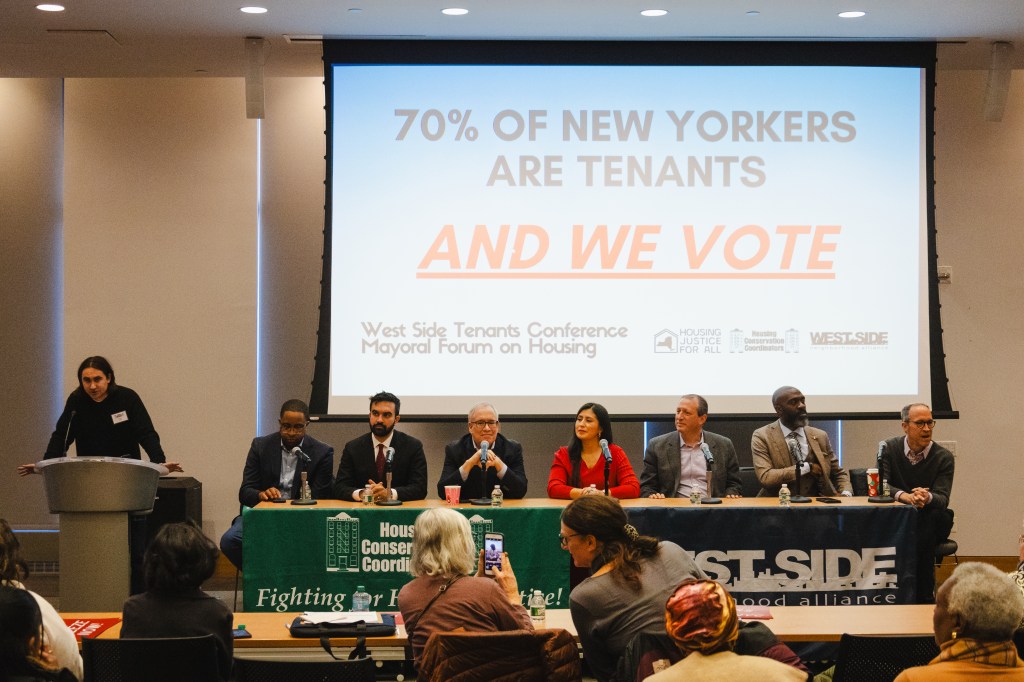As soon as the State Senate voted by a 38-24 margin to defeat a bill that would legalize same-sex marriage, scrutiny over how each Senator cast his or her vote quickly ensued. In Queens, six Democrats and one Republican cast their vote on Wednesday, December 3, but the votes on this controversial legislation did not fall strictly along party lines as they often do.
While Queens Republican Senator Frank Padavan voted against the bill like all of his 29 Republican colleagues, four of the six Queens Democrats crossed over party lines and voted to reject the legislation. Queens Democrats Joseph Addabbo, George Onorato, Shirley Huntley and Hiram Monserrate all voted against the bill, while only Malcolm Smith and Toby Ann Stavisky voted in favor of it.
“A lot of it is estimates of constituent reaction, and I think some of it might just be the personality and the current situation of a particular Senator,” said Michael Krasner, an associate professor of political science at Queens College.
Just prior to the vote, many of the bill’s backers including State Senator Tom Duane, who is the only openly gay State Senator, believed that they had enough votes to pass the bill. However, even after listening to the passionate speeches from Duane and many other Senators who supported the measure, Stavisky said the Democratic Conference did not see things that way.
“We knew that it was doubtful at best,” she said.
One of the main targets of anger from same-sex marriage groups was Addabbo, who received support – including campaign donations in 2008 – when he ran against then-Republican State Senator Serphin Maltese.
“My vote was very simple; it was a question of what I was elected to do when I took the oath of office,” said Addabbo, whose office got nearly 400 correspondences from constituents about the issue – roughly 75 percent of which were against same-sex marriage, he said.
Addabbo said he never discussed his own opinion on the subject with people in his district because he wanted to hear how his constituents felt. Although he said he was never pressured to vote one way or another, he was “asked very strongly” to vote in the affirmative by his leadership and unions. Addabbo also said he never committed to voting in favor of the legislation.
“I never was totally embracing of the issue,” Addabbo said. “I have always voted how I felt my district needed me to vote as far as a consensus.”
Meanwhile, Onorato, 81, who could be nearing retirement or face a possible primary challenge in November, said that while he continues to support civil unions for gay and lesbian couples, he believes marriage is between one man and one woman.
“I have been clear on my position throughout this entire debate, and I was among those who urged the Senate leadership to bring the legislation to the floor for a public vote,” Onorato said. I am glad that this has now occurred.”
Stavisky, who said she voted in favor of same-sex marriage because she is opposed to discrimination whether it be on race, religion, gender, age or national origin or anything else, did not criticize her Queens colleagues for voting against the measure.
“They did what they thought was right,” Stavisky said. “They voted their conscience.”
Although it appears unlikely that the State Senate would resurrect the controversial bill before Senate seats are up for grabs again in 2010, that does not mean same-sex marriage advocates not be heard from during the next year.
In addition to Addabbo and Onorato, Krasner mentioned that Monserrate, who is facing a strong primary challenge from a same-sex marriage supporter, Assemblymember Jose Peralta, and Padavan could face same backlash from the gay rights community during next year’s election.
“I think they [same-sex marriage advocates] are deeply disappointed and probably furious at some of the machinations that went on,” Krasner said. “My hunch is they are going to target some of these Queens Senators and that is going to have an impact in 2010.”






























